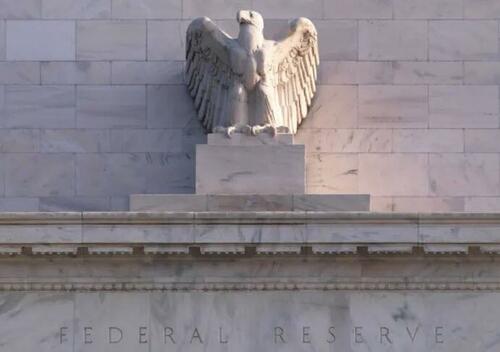Author: Tyler Durden
Source
Authored by Mike Shedlock via MishTalk.com,
A Federal Reserve white paper has come up with a new function for money. Let’s tune in…
Docket No. OP – 1670
Please consider Docket No. OP – 1670 on Interbank Settlement of Faster Payments.
The Federal Reserve Board announced that the Federal Reserve Banks will develop a new round-the-clock real-time payment and settlement service, called the FedNow Service, to support faster payments in the United States.
This is a direct response to the threat posed by digital currencies and blockchain. According to one Fed official, “Last summer, the U.S. Treasury recommended that ‘the Federal Reserve move quickly to facilitate a faster retail payments system, such as through the development of a real-time settlement service, that would also allow for more efficient and ubiquitous access to innovative payment capabilities.”‘ We believe this effort requires a proof-of-authority quantum computing based blockchain system.
As we noted in our paper “Blockchain, Cryptocurrency and the Future of Monetary Policy,” confidential, not-for-distribution research sent to select members of the House Financial Services Committee, it is critical to understand that bitcoin was created in direct response to the failure of global regulators to protect the public in the years leading up to the financial crisis of 2007/2008. Thus, the ethical and monetary functionality of cryptocurrency is superior to that of paper money. Eventually, cryptocurrency is going to dominate.
As also noted in our paper, “The main economic attributes of a technically effective currency rests on three functions: as a unit of account, a store of value and as a medium of exchange.”
But there is a fourth function of money: as a means of social control. The centralized monopoly over the functions of money held by sovereign governments and central banks has generated great income and wealth imbalances. Concerns about a lack of central bank performance with respect to financial inclusion, income inequality, economic system stability and the tendency of central banks to intermediate on behalf of large financial institutions supported the creation of cryptocurrency”
As we noted in a second paper “Is FedCoin Feasible?” another confidential, not-for-distribution research paper sent to select members of the House Financial Services Committee, we suggest the Board focus on using an enhanced Bitcoin blockchain to “support depository institutions’ provision of end-to-end faster payment services and would provide infrastructure to promote ubiquitous, safe, and efficient faster payments in the United States.”
Confidential Not for Publication
The Fed is sending “confidential, not-for-distribution research” to select members of the House Financial Services Committee espousing money as a means of social control.
The confidential Fed research express concerns over income inequality and fears of Bitcoin.
The link above was published in October of 2019, but it just came my way today.
The rest is confidential, sent no doubt to select Marxists on the House Financial Services Committee who want to address income inequality by income redistribution.
What we don’t know is how much further progress has been made towards income redistribution and social control. Nor do we know what other ideas regarding money are hidden in the papers.
Seriously, WTF?!
Fed Policy: It’s Not Fractional Reserve Banking, It’s ZERO Reserve Banking
Meanwhile, please note Fed Policy: It’s Not Fractional Reserve Banking, It’s ZERO Reserve Banking
There’s nothing like a Fed-sponsored bank crisis coupled with zero reserves on deposits to help aid the goals of using money as a means of social control.
* * *
Tyler Durden
Thu, 03/23/2023 – 07:20
